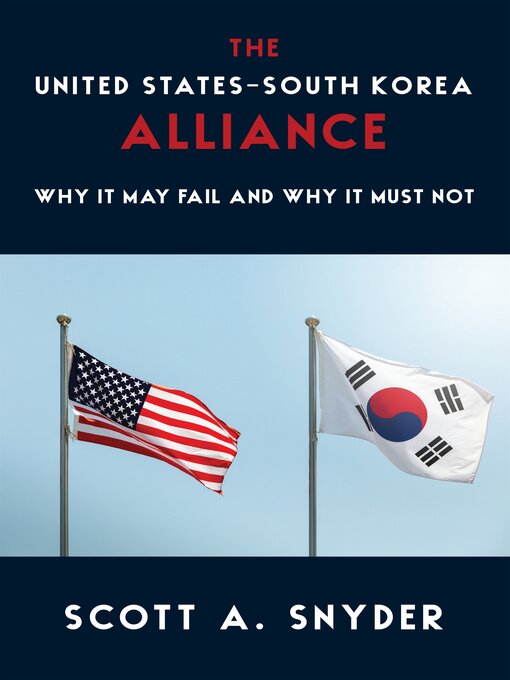The alliance between the United States and South Korea has endured through seven decades of shifting regional and geopolitical security contexts. Yet it now faces challenges from within. Domestic political turmoil, including deepening political polarization and rising nationalism in both countries, has cast doubt on the alliance's viability—with critical implications for the balance of power in East Asia.
Scott A. Snyder provides an authoritative overview of the internal and external pressures on the U.S.–South Korea alliance and explores its future prospects. He argues that nationalist leaders' accession to power could put past successes at risk and endanger the national security objectives of both countries. In the United States, "America first" nationalism favors self-interest over cooperation and portrays allies as burdens or even free riders. "Korea first" sentiments, in both progressive and conservative forms, present the U.S. military presence in South Korea as an obstacle to Korean reconciliation or a shackle on South Korea's freedom of action. Snyder also examines North Korea's attempts to influence South Korean domestic politics and how China's growing strength has affected the dynamics of the alliance. He considers scenarios in which the U.S.–South Korea relationship weakens or crumbles, emphasizing the consequences for the region and the world. Drawing on this analysis, Snyder offers timely recommendations for stakeholders in both countries on how to preserve and strengthen the alliance.
- Arts & Crafts
- Fitness and Health
- Outdoor Recreation
- Biography & Memoir
- Business
- History
- All Nonfiction
- See all

